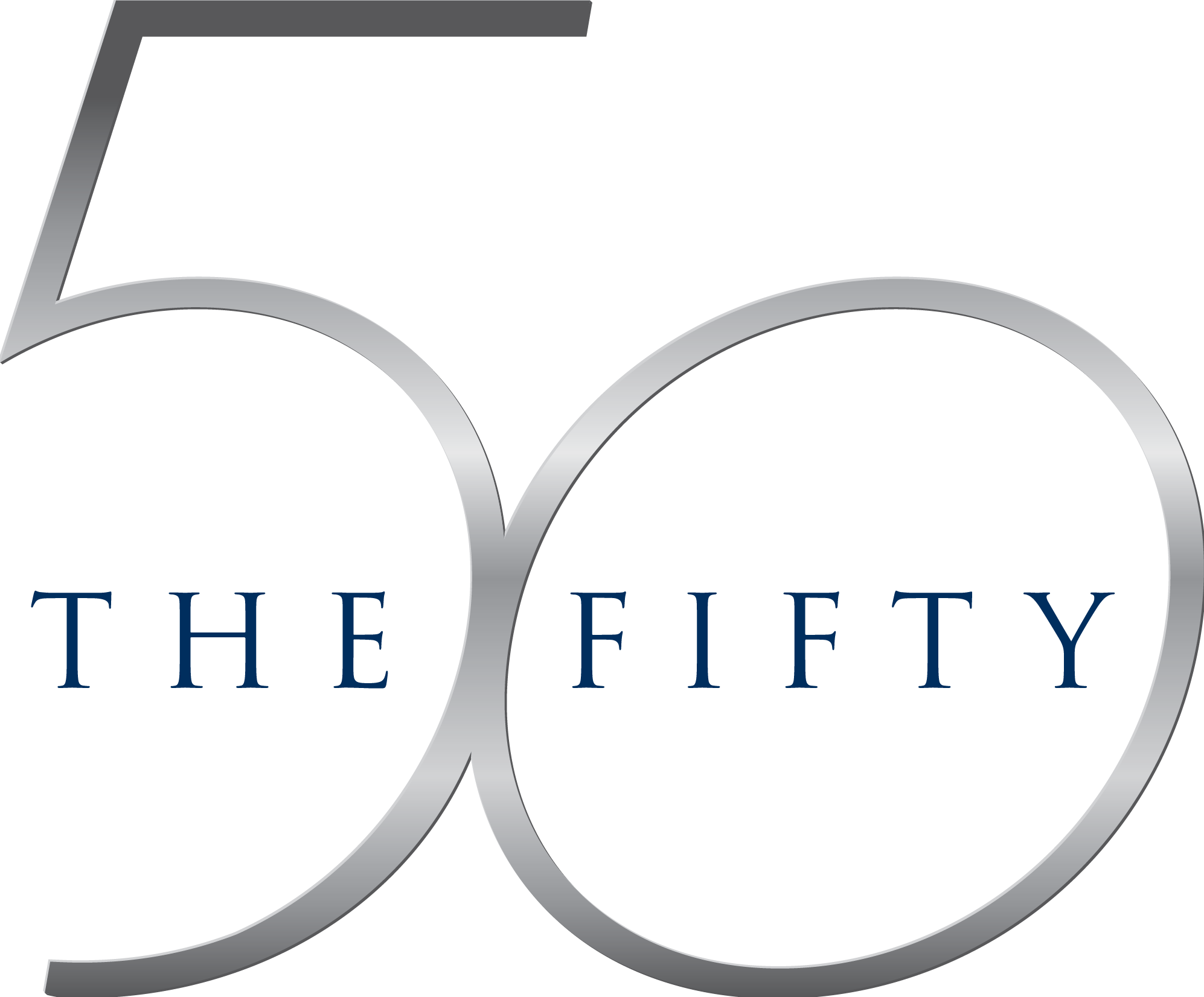
There’s something about Thaddeus Young that elicits strong reactions from NBA coaches.
For instance, take what his former coach, Darko Rajaković, said about Young shortly before he was traded away from the Toronto Raptors and landed with the Phoenix Suns. It goes beyond his ability to play every position on the floor, his willingness to put his body on the line to take a charge, or the fact that his career has transcended two very different eras of the game.
“I can speak about Thad Young for the whole night,” Rajaković told reporters after a victory in Chicago in January. “It’s not just what he does on the court. It’s everything else he does off the court as well. This whole season, when he was not playing, he was not in rotation, he always stayed in shape, he was always a part of the play groups, he always was the right voice for our team and he was always building our guys. It’s great to see him be on the court out there playing (because) even more his voice has a value because he’s sharing the court with players and he can help them even more.”
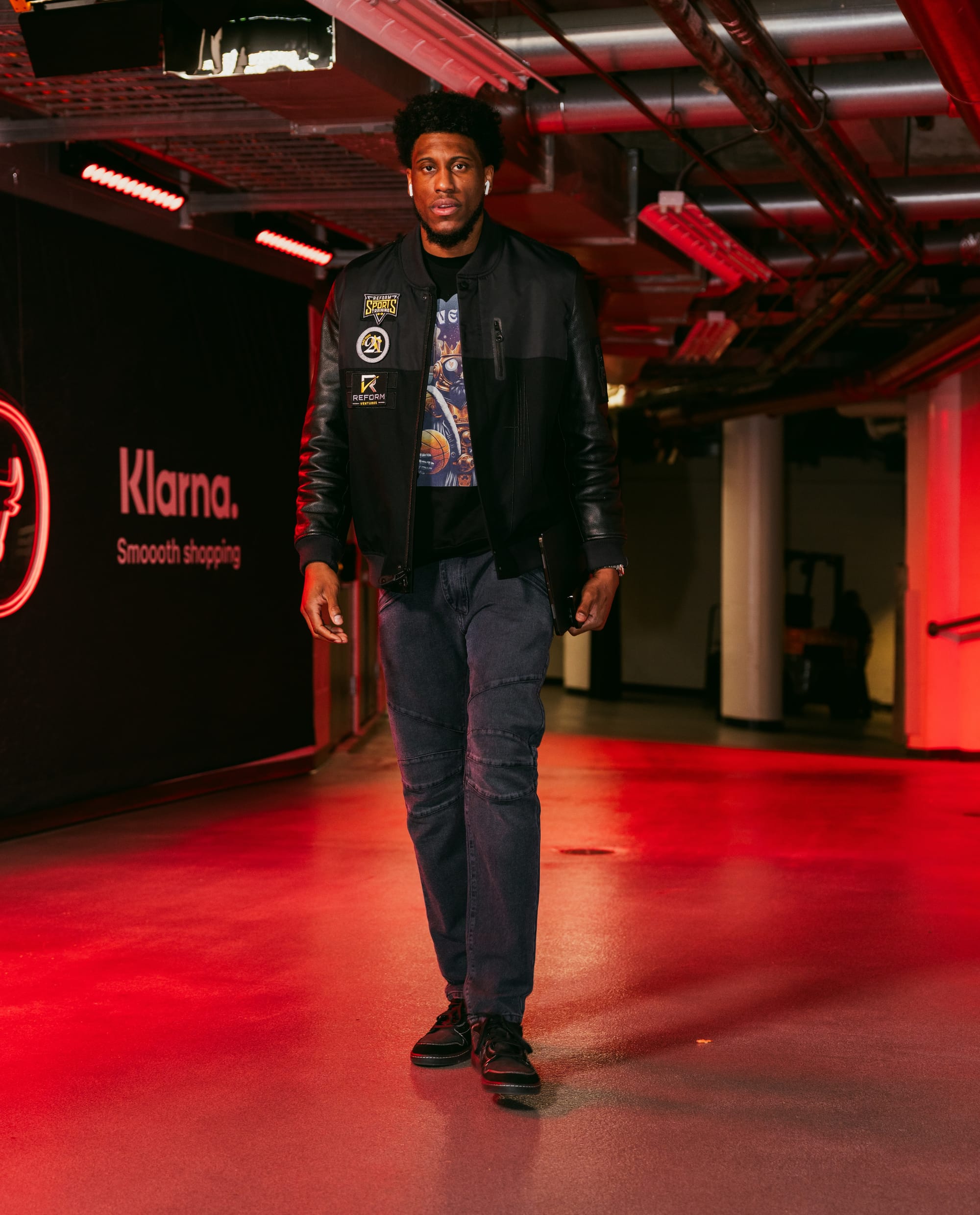
And then there is Billy Donovan, Young’s former coach with the Chicago Bulls. After the Bulls sent Young to Gregg Popovich and the San Antonio Spurs, Donovan reportedly wanted to figure out a way to get him back.
“I was only with him for a year, but I loved being with him. He’s really smart, and he knows how to play,” Donovan told reporters after a game in February
Most of all, consider former legendary coach Doug Collins’ comments about Young. When asked if he would talk about Young for this story, Collins’ text jumped right out of the iPhone.
I LOVE THAD… My favorite ALL TIME player….A Coaches DREAM…. A Beautiful HEART & ALL ABOUT team…. A WINNER…
Yes, Collins called Thad Young his favorite all-time player. Consider that for a moment when you remember that Collins coached Michael Jordan for five seasons with the Chicago Bulls and Washington Wizards.
“Thad is just a coach’s dream,” Collins said, who coached Young for three seasons in Philadelphia. “He’s a guy when you’re trying to build something that says, ‘Hey coach, whatever you need from me, that’s what I’ll give you.’ That’s what I’m talking about when I say he’s my favorite player.”
Call it coach-speak for a player showing a chameleon-like ability and a willingness to do whatever a team needs. From the 19-year-old who entered the league as a tough defender and quick forward as the No. 12 overall pick out of Georgia Tech in 2007 to the 17-year veteran who has turned into a coveted piece contending teams like to add as they make a playoff push, Young’s career has been defined by his adaptability.
Need a small-ball center? At 6-foot-8, Young has no problem giving the big men a break to mix it up in the paint. Or, if that lightning-quick player on the wing is giving a team fits by slashing to the basket and slipping out in the transition game, Young can step in and match up with speed or put his body on the line by taking a charge.
And, if your team is getting run ragged by quick guards running the two-man game, Young is your guy. He made his name around the league for his ability to blow up pick-and-rolls and smother ball handlers before the play even gets started.
Young is a basketball Swiss Army Knife who embraces his role — whether he's starting or coming off the bench or asked to play center or guard. Even when joining a new team, like he’s done in Philadelphia, Minnesota, Brooklyn, Indiana, Chicago, San Antonio, Toronto, and now Phoenix, Young assesses the situation and learns where he can best help his team.
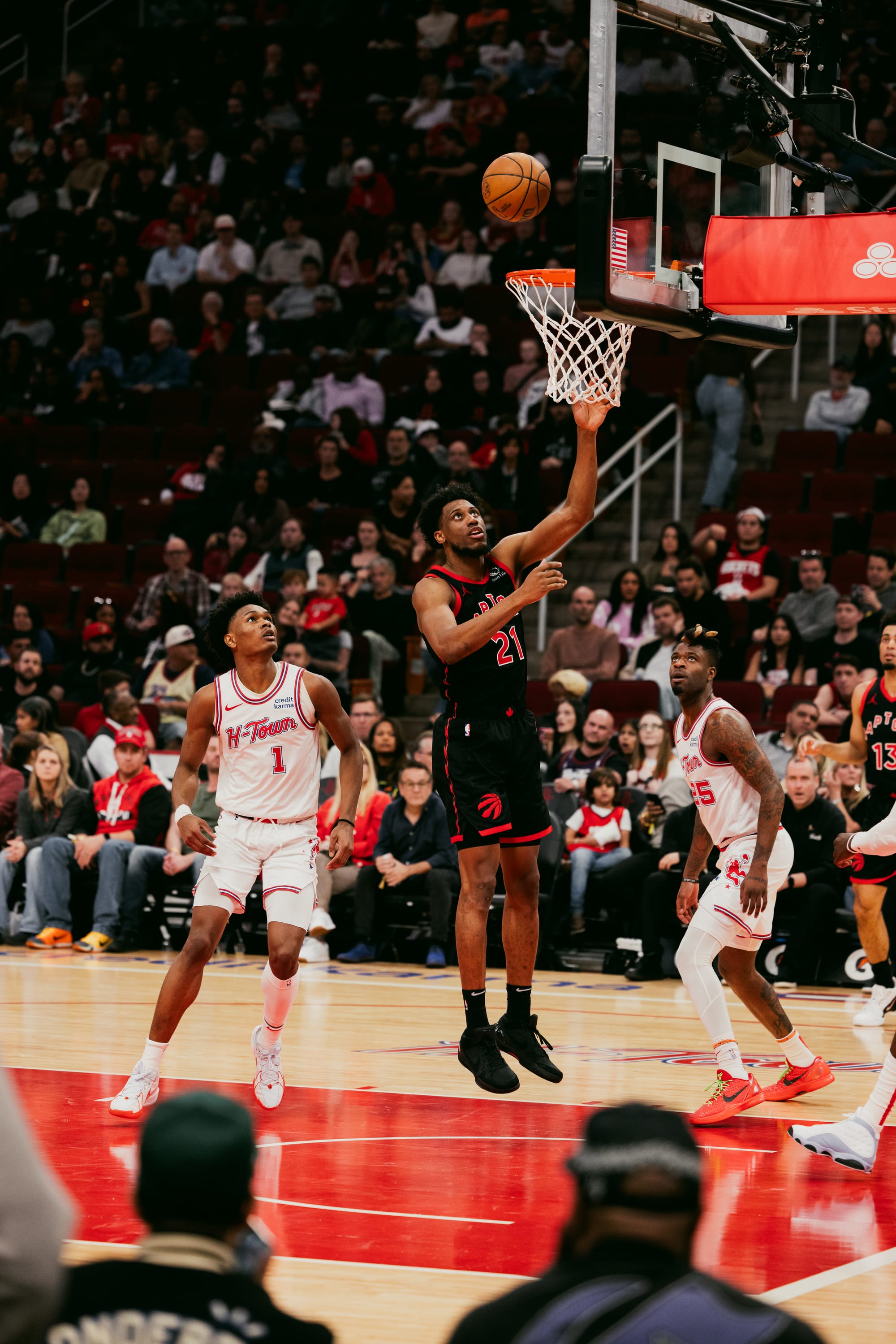
So, what is it about Thaddeus Young that gets such a strong response from some of the best minds in the NBA?
Thaddeus Young is a basketball player.
“What he does, he gives you a security blanket,” Collins explains. “He might not be in the plan for three games or so, but if you put him in, you know he is going to be ready, he’s going to maintain his conditioning, he’s going to know what you’re doing.
“And, if he’s not playing, he’s going to be over on the bench and he’s going to be encouraging those guys who are out there playing. When you get to the stage of your career, it’s nice to have a role like that where you have that voice that’s been around and seen a lot and, as a coach, that’s just, I don't know how you could ever not love having him on your team.”
Young’s younger teammates see a player who has been through all the wars and experienced every scenario imaginable in basketball — on and off the court.
“It’s just his approach to the game, his mindset, his knowledge,” former Raptors teammate Gary Trent Jr. told reporters after a game in Chicago. “The things he talks about, the things he sees on the floor, the countless situations he's been in. He’s like an Old Testament book that has all the rules.”
Thad Young’s first coach was his father, Felton Young. Felton played college ball for Jacksonville from 1975-1978, averaging 13.7 points and 6.7 rebounds per game with an efficient 52.3 percent shooting percentage. A 7-footer, Felton was drafted by the Buffalo Braves (later, the team moved to San Diego and Los Angeles where they were known as the Clippers) in the 1978 NBA Draft that featured All-Star players like Micheal Ray Richardson, Reggie Theus, No. 1 overall pick Mychal Thompson – father of Warriors’ star Klay Thompson — as well as two Hall of Famers, Maurice Cheeks and Larry Bird.
Felton Young taught his son to think about basketball as a complex chess game. Every piece on the board did something different from the others.
“My dad taught me the game of basketball, from the standpoint of thinking it. I've always been a thinker. I've always been a person who can try to figure out how the best way for us to perform as a team to win the basketball game,” Young said.
With that foundation, Young was a varsity basketball player at Mitchell High School in Memphis as an eighth grader. By the time he was a senior, he was named Mr. Basketball in Tennessee, a McDonald’s All-American and one of the top college basketball recruits in the country. After just eight months at Georgia Tech (where he was the youngest player on the team), Young joined the Philadelphia 76ers as the 12th overall pick in the 2007 draft.
Seventeen years later, only two other active players have appeared in as many games as Young – LeBron James and Chris Paul.
Still, Young looked at survival in the NBA as a fight. Even as he completes his 17th season, he approaches every game and every practice with all the enthusiasm and energy he can muster. Some people call that ability one of those uncanny intangibles that some people have and others do not. However, Collins does not believe those things are intangibles.
They are more than that.
“Of all the different coaches that he's played for, all the different players that he's played with, and he knows when he gets to a certain team, what that team needs for him, and that's what he'll bring,” Collins said. “The one thing you'll always get from him is unselfishness. He's going to play with a lot of energy. I'm telling you, energy and toughness – those aren't intangibles anymore. Those are skills.”
Thaddeus Young knows it isn’t merely a question — it is the question. After 17 seasons in the NBA — nearly half of his life — Young shrugs when he hears it …
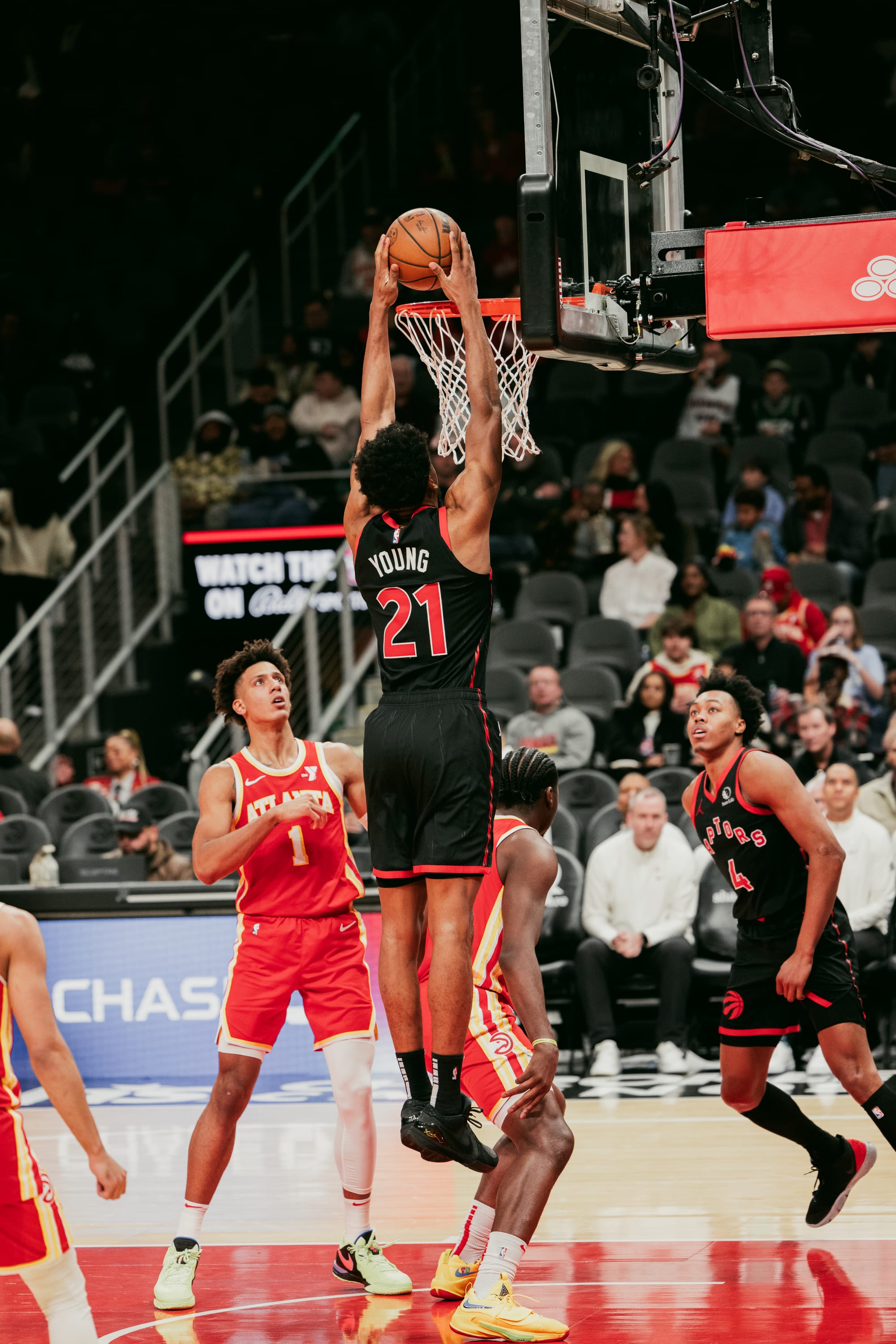
How much longer are you going to play?
“Honestly, when I started playing in the NBA, I was like, ‘I hope I can play five years.’ And then I looked back at it, and I played 10 years, and it just flew right by,” Young says. “Then I got to go out and try to get to 15. Now it’s like, how much more do we need?”
Young says his kids want him to go for 20, putting him in rarified territory. In the history of the NBA, only 10 players have lasted 20 seasons, most of which are in the Hall of Fame. It seems reasonable that three more seasons could be part of the plan if Young wants it to be. Though he mostly has been playing on one-year contracts these days, he hasn’t been waiting to get them. Even after he was traded by Toronto and released by Brooklyn as a salary-cap casualty at February’s trade deadline, Young was out of work for just a few minutes, with Boston, Chicago and Philadelphia all clamoring for his services before he signed with the Suns.
Figure it this way: Young has earned enough money (more than $187 million in career salary, according to Basketball-Reference) that he doesn’t have to play anymore. His wife, Shekinah, and two sons, T.J. (13) and Taylor (10), call Dallas, Texas, home during the off-season. However, during the NBA season, home is where the NBA schedule takes them. Shekinah home-schools the kids, so the family is rarely apart — a luxury many professional athletes don’t have.
Still, how much longer does he want to play?
“That’s the question, and I don’t know,” Young said. “For me, it's always going to be about my family.”
His family is involved in ways most others are not. His sons are budding players who have received a basketball education like no other. Young says that TJ and Taylor will soon have undivided coaching from their father.
“I enjoy those moments. I want to make sure they have all the same opportunities I had,” Young said.
Then there is Team Thad, an elite AAU basketball program based in Memphis that competes nationally and intends to turn out the next crop of McDonald’s All-Americans like its founder. Two players, Derrion Reid and Jayden Quaintance, are Team Thad members who have been selected for the 2024 All-American game.
And then there is Reform Ventures. When Young finally calls it a career, he can dedicate his time to his private equity and venture capital firm, which began after a conversation with a friend about gaming. That conversation went down the rabbit hole into investing, and the next thing you know, Young enlisted his wife and father to be part of this new company.

“We invest into companies all down the line from early to late-stage products,” Young said. “We do appropriate due diligence on a lot of the companies that have a lot of different partners that we’ve kind of got to have over the course of time. We invest through bonds, fund of bonds and outbreaks as well. And we probably have, through all those different protocols, two of the 100 companies under management.”
The company is very diversified. It funds startups and buys small businesses in areas ranging from real estate to renewable energy.
But before he devotes himself to Reform Ventures full-time, there is the matter of an NBA career — maybe even a job in an NBA front office — which he would like to pursue when/if he ever calls it quits.
Until then, he’s showing much younger players how to get it done.
“I continue to stay healthy and continue to be able to play at a high level,” Young said. “I think it’s opened some guys' eyes to see that it is possible. I try to tell guys all the time — you can play 15 years in this league if you do the things that you need to do early on in your career.”
So why does he keep going? Why does he wait for those one-year contracts to show up every summer?
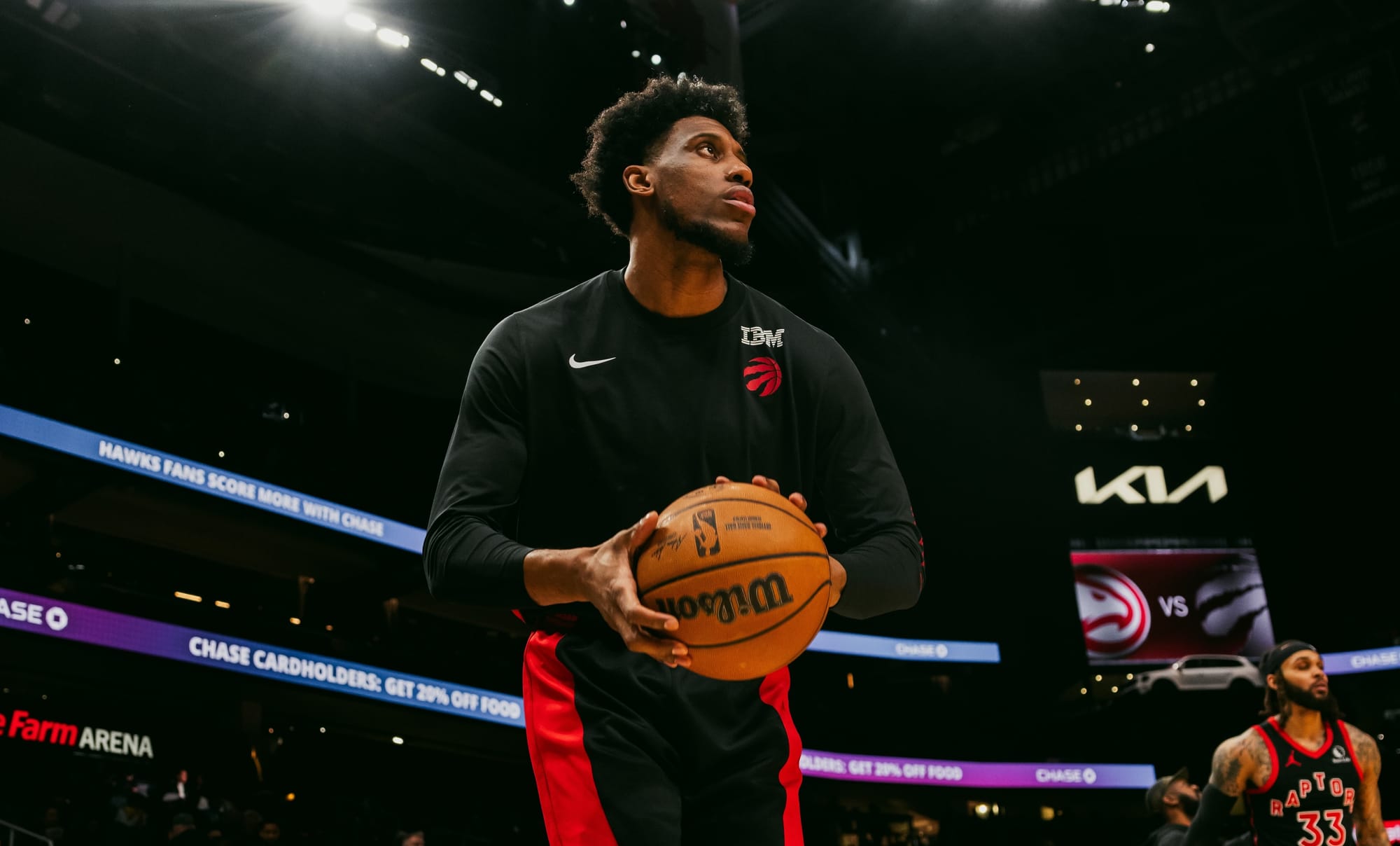
“It’s one word to me,” Collins explained. “One word. It’s easy. It’s his faith that leads him to be grateful. He's grateful every morning that he wakes up, that he has a job like this, that he still loves to do that, and that his family can be a huge part of it. And, the moment Thad would ever lose that love of the game, he'll leave. But he still loves it. He still loves being in the gym. He loves the camaraderie. He loves being a mentor.”
Indeed.
“I’m a basketball player,” Young said. “When the time is right and the situation makes sense, I’ll be fine with walking away.”
For now, though, there is still more work to do. Of course, the icing on the cake would be a championship, and Phoenix is a team built to make a serious run in the playoffs.
“That’s the only thing missing at this point,” Young said. “I’m living the dream.”
Advertising and sponsorship opportunities are available. Contact Jim Hoos at jhoos@r1s1sports.com or 602-525-1363.